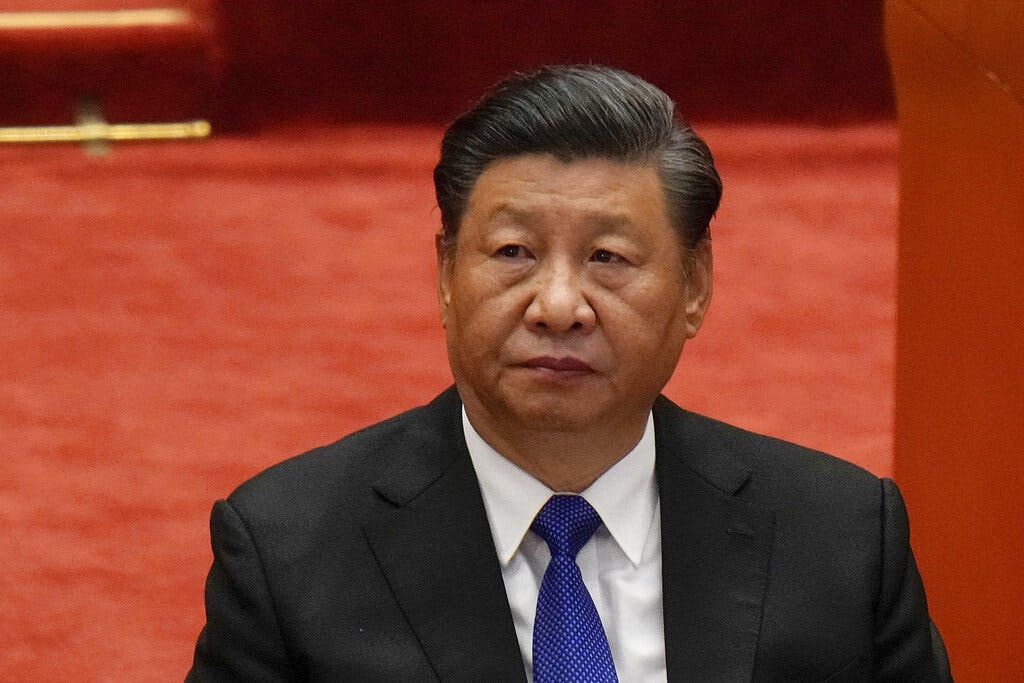Could China’s Social Media Campaign To Sway U.S. Voters Ignite a More Vigorous Response?
Such push-back is surely needed in response to Chinese offenses.

News of a China-based social media campaign to sway U.S. voters in advance of the midterm elections is raising the question of what America will do to respond.
America’s reaction to reports of Russia meddling with our democracy has involved economic sanctions and expelling some diplomats. That doesn’t seem to have scared off China-based actors from trying a copycat crime.
Also inadequate as a deterrent has been America’s weak response to China’s previous misbehavior, such as the trampling of political and religious freedom in Hong Kong; to what the U.S. government calls the ongoing genocide in Xinjiang; and to the Chinese failure to provide full transparency about the first coronavirus patients in Wuhan. If those offenses have so far been insufficient to stir America to meaningful action, maybe news of China-based election interference will provide the push needed to generate a more vigorous response.
What would a robust American policy toward China look like? It’s about time to figure it out: The National Congress of the Chinese Communist Party is scheduled to begin October 16 at Beijing, with Xi Jinping set to grab another five years as China’s dictator. Here are some possibilities for American counterprogramming, based on the Cold War lesson that communism can be not merely contained but actually defeated.
Pass a law. Congressman Mike Gallagher, a Republican of Green Bay, Wisconsin, has introduced a resolution that condemns the Chinese Communist Party for 100 years of gross violations of human rights. The resolution also stands “with the Chinese people in their struggle for liberty.” The bill “supports the inherent right of the Chinese people to self-determination and free political expression independent of one-party rule,” and “looks forward to the day that the Chinese Communist Party no longer exists.” The legislation has attracted some Democratic co-sponsors, such as Representatives Elaine Luria, Elissa Slotkin, Conor Lamb, and Josh Gottheimer.
Rename a street. Washington, D.C., named the street in front of the Saudi Embassy “Jamal Khashoggi Way” and the street in front of the Russian Embassy “Boris Nemtsov Plaza.” The street outside the Soviet Embassy at Washington was named Andrei Sakharov Plaza. Any city with a Chinese consulate or embassy could consider taking a similar effort to highlight a dissident being persecuted by the Chinese Communist government. There is no shortage of names to choose from. Let the Chinese diplomats in America drive to their offices past street signs marking “Jimmy Lai Way” or “Cardinal Zen Street.”
Speak plainly. Let the American president, in speaking about Communist China, echo Ronald Reagan’s clarity in speaking about the Soviet Communist system. Call out evil for what it is, and articulate the universal ideal of freedom.
Recruit foreign students as allies. More than 317,000 Chinese students enrolled in U.S. institutions in 2020-21. If those students want to study engineering or science in this country, America should make it conditional on their also studying political, economic, and religious freedom, and having the ability to flee China to America if they are asked to put their America-gained knowledge in the service of an authoritarian, genocidal regime. Let Chinese foreign students be a way of infusing American values into China, not a way of China accumulating American technological skills that it can use to repress freedom or perpetuate Chinese Communism. The State Department says that Chinese students studying abroad “reported self-censoring because they understood they were being watched and reported on … even in the classroom.” No American university should tolerate or enable that kind of Communist spying on its campus.
Link trade and freedom, and don’t forget the labor unions. Against the Soviet Union, Solidarity in Poland, backed by the American Federation of Teachers and the AFL-CIO, was key. The quickest way to free China could be to find and back a Chinese Lech Walesa. Americans know that their right to organize is meaningless if their manufacturing jobs can be replaced by workers in China, where, as the U.S. State Department puts it, “independent unions are illegal, and the law does not protect the right to strike.” I understand comparative advantage and the economic benefits of free trade, but America outside of Manhattan and San Francisco is full of medium and small cities where the formerly good-paying factory jobs have moved to a Communist country in which free unions are illegal.
Make the most of refugee flows. The end of the Soviet Union came with the ability of those trapped behind the Iron Curtain to flee. Nothing demonstrates the weakness of communism better than the desire of those trapped by it to escape to freedom. The Chinese would suffer from a brain drain, and America and its allies would benefit by welcoming the flow of talent.
An American forward strategy could help make the upcoming Chinese Communist Party congress the final one. Rather than tolerating the Chinese meddling with our democracy, let us disrupt their dictatorship.

